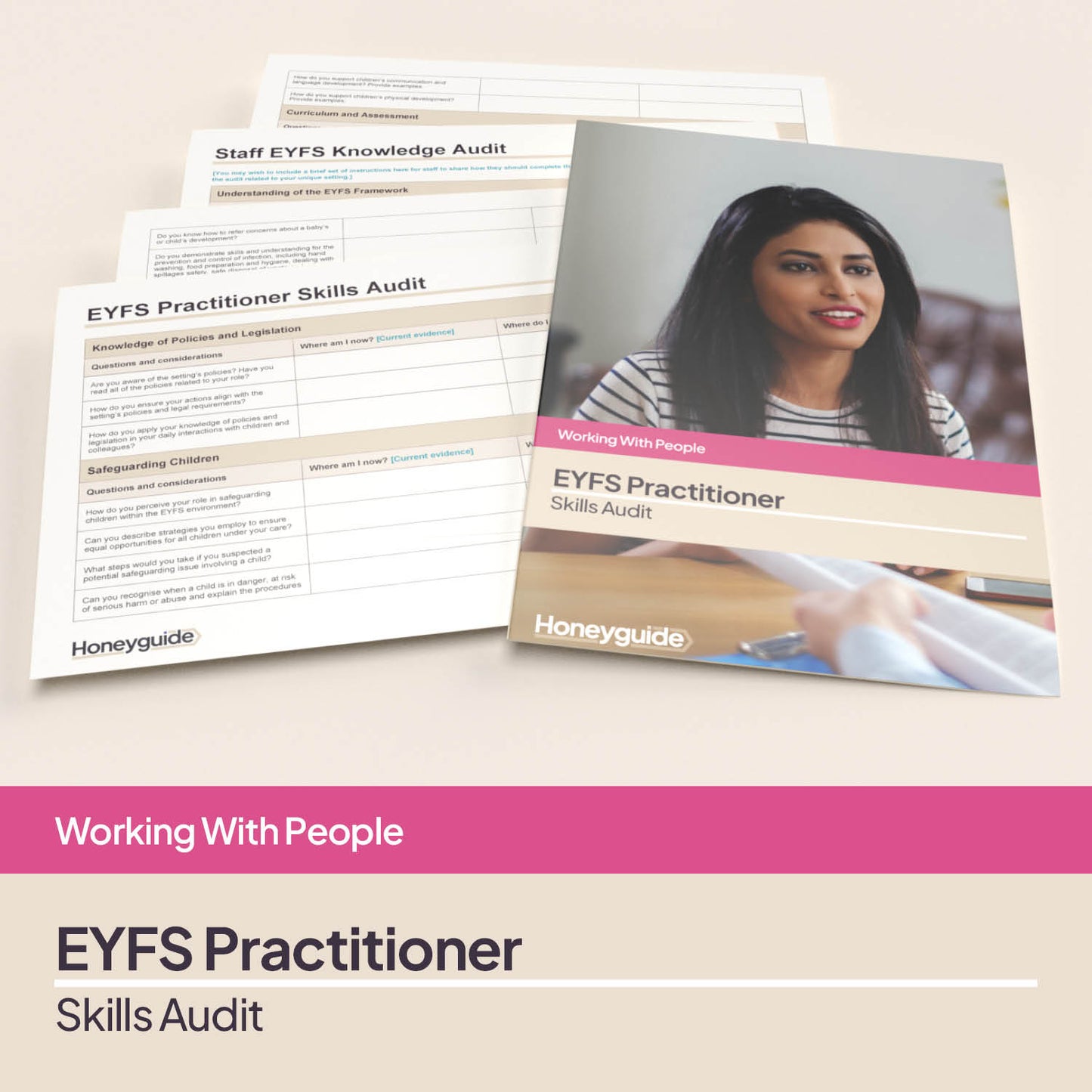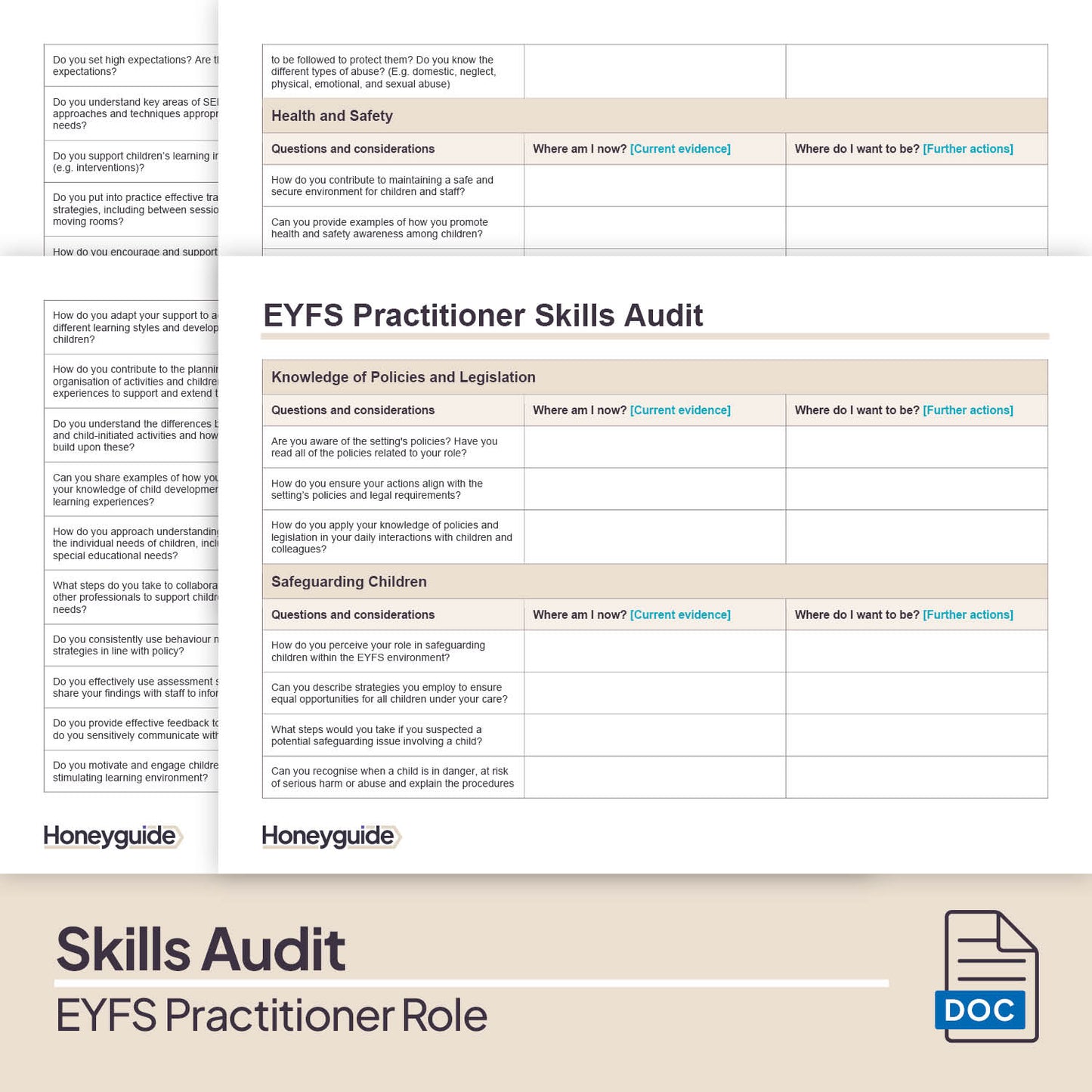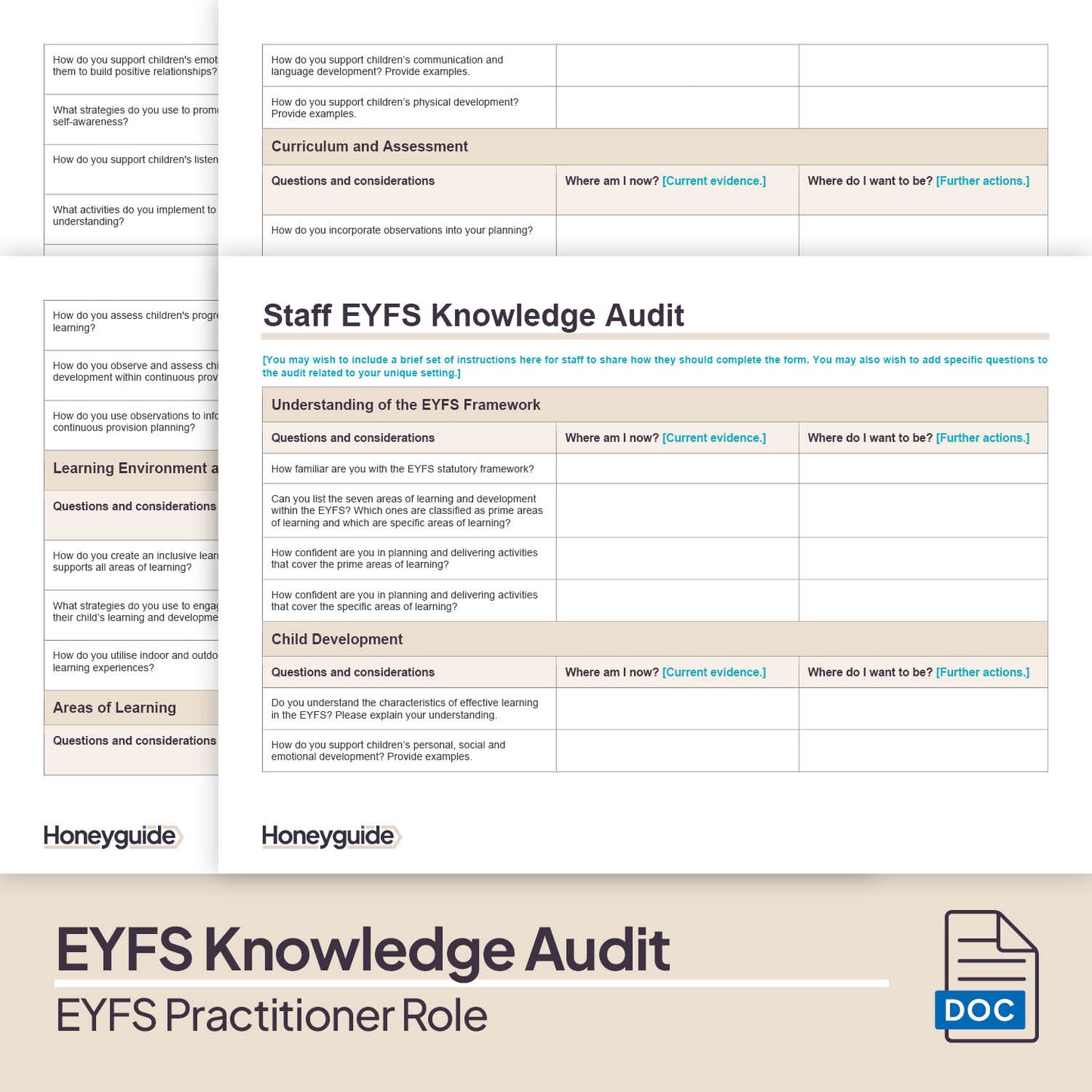Honeyguide School Leader Support
EYFS Practitioner Skills Audit Pack
EYFS Practitioner Skills Audit Pack
Looking to identify the skills and development points of an EYFS practitioner in your setting? Or perhaps you're a preschool worker, nursery assistant or a teaching assistant in a Reception class who wants to explore role-specific strengths and weaknesses as part of your ongoing development or when looking for a new role. No matter the situation, this handy pack contains exactly what you need to uncover strengths and plan for professional development & growth.
- Buy what you need when you need it
- No costly subscription required
- Instant download
Couldn't load pickup availability
Share



Collapsible content
What's included in this bundle?
A quick-and-easy pack to audit the skills of a member of your early years practitioners. This pack contains concise guidance to support you in effectively utilising the skills audit, whether you're line managing a EYFS TA, preschool assistant or another EYFS practitioner role, or whether you're a EYFS practitioner yourself who's wanting to evaluate their strengths and areas for improvement.
Included is a 15-page template covering the different areas of skills that an early years practitioner may need - this is further broken down into sections that are specific to job roles in the early years, including:
- Knowledge of Policies and Legislation
- Safeguarding Children
- Health and Safety
- Data Protection in the EYFS
- Teaching, Learning and Meeting Children's Needs
- Working With Others
- Knowledge, Understanding and Continuous Professional Development (CPD)
- SEND Support
- The Key Person Role
- Other EYFS-specific Knowledge and Skills (e.g. the seven areas of learning)
Also included in this pack is an EYFS Knowledge Audit - rather than exploring the skills needed to work in the EYFS, the knowledge audit helps your explore your understanding of key early years regulations and principles, such as the EYFS statutory framework, early childhood development and the EYFS areas of learning.
Questions from the EYFS Skills Audit and the Staff EYFS Knowledge Audit include:
- Can you list the seven areas of learning and development within the EYFS? Which ones are classified as prime areas of learning and which are specific areas of learning?
- How do you support early reading skills, such as phonics and storytelling?
- Do you undertake specific tasks related to the safety and hygiene of the children and the cleanliness of the setting?
- Are you able to identify how babies’ and young children’s learning and development can be affected by their stage of development, wellbeing and individual circumstances?
Who will find this resource useful?
The pack is aimed at supporting staff who work within the EYFS and can be used by anyone who line manages an early years practitioner, such as a phase leader, EYFS leader, nursery manager, preschool manager or similar . This can help to inform appraisal and performance management processes, as well as identify CPD needs for the EYFS practitioner.
What questions does this pack have the answers to?
Whether staff members are new-to-role or have vast experience in their area, skills audits are a valuable self-evaluation tool. When a staff member reflects on their competencies and expertise, they’ll gain a comprehensive understanding of the strengths they bring to their role while identifying opportunities for growth or next steps. This self-awareness can boost confidence and self-belief, as well as enabling individuals to articulate their unique contributions to the team.
When skill gaps are identified, performance targets can include specific objectives aimed at addressing these gaps, allowing those with line management responsibilities to support the staff member through professional development and further training. Skills audits can also help school leaders to create balanced teams, prepare for change, support staff retention and assist in succession planning.
Key questions answered:
- Why is it important for staff to utilise skills audits?
- How should a skills audit be conducted?
- How can skills audits inform performance management targets?
- How can leaders identify individual staff training needs?
- What other ways can skills audits be used?
What else can help me?
Skills audits can be used as a valuable part of the induction process when a new staff member joins your team. Find out more about how to craft staff induction procedures that allow staff to get off to a flying start in your setting with the following pack:
If you know that your staff have training and development needs, and are looking to enhance your CPD planning, this pack will support your thinking:
If you're thinking about recruiting an early years practitioner, and want to use the skills audit as part of that process, then you'll find the following packs and pages useful too:



